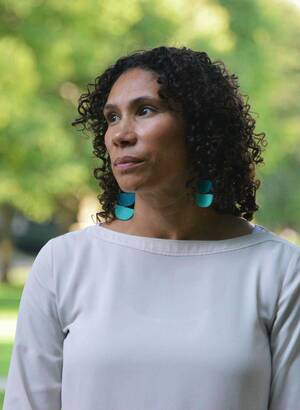 "
"
Anna Haskins is the Andrew V. Tackes Associate Professor of Sociology and Associate Director of Notre Dame's Initiative on Race and Resilience (IRR). Before coming to the university, she taught elementary school in Wisconsin for three years and was an assistant professor at Cornell University for seven years. Haskins teaches three rotating courses, including “Social Consequences of Mass Incarceration,” “Introduction to Social Problems” and a graduate class titled “The Sociology of Race and Institutions.” In her role as associate director of the Initiative on Race and Resilience, she is in charge of the artist-in-residence program, using art to break down racial divides and bridge communities. Haskins is co-editer of a book released in 2017, “When Parents are Incarcerated: Interdisciplinary Research and Interventions to Support Children.” Her research focuses on how a parent’s incarceration impacts how they interact with schools and its impact on a child’s educational outcomes. In February, Notre Dame Student Government awarded Haskins the Black Excellence Faculty Award to honor her work as an outstanding Black community member.
What are your main areas of research?
“I think about myself as a sociologist of education, a sociologist of inequality and a sociologist of race — all of those put together. Within that frame, I'm interested in things at the mezzo level, which means that I'm interested in schools and other social institutions. What drew me to this, having been an elementary school teacher, was being interested in racial disparities and educational outcomes. And then from there, [I was] thinking about what other social institutions had racial disparities that could help us understand what was happening within schools. That led me to study the criminal legal system and think about the connection between the criminal legal system and schools: two important institutions within American society and the ways in which they connect.”
Can you expand on the project you’re currently working on?
“This current project is an interview-based project asking formerly incarcerated families, in essence, how they see and interact with their kids’ schools. We’re also asking school personnel, teachers, school social workers, principals, school resource officers and other agents of schools, how they see and engage with parents involved in the criminal legal system. It's a broader way to try to understand why a parent’s incarceration might impact their kids’ educational outcomes. There are many pathways that [this can occur through], and I'm trying to figure them out. This project is trying to ask those questions of: How do you engage with your kids’ school? Do you trust the school?”
Why do you think these topics should be studied?
“This is a massive social issue. American society is wholly unequal in so many different ways, and I think that we don't have to be that way. We have to know the ways in which it is unequal and know them well enough to understand how we can come in and intervene, and then use our minds to think creatively about how we can reconstruct a society that fits more of what we want it to be.”